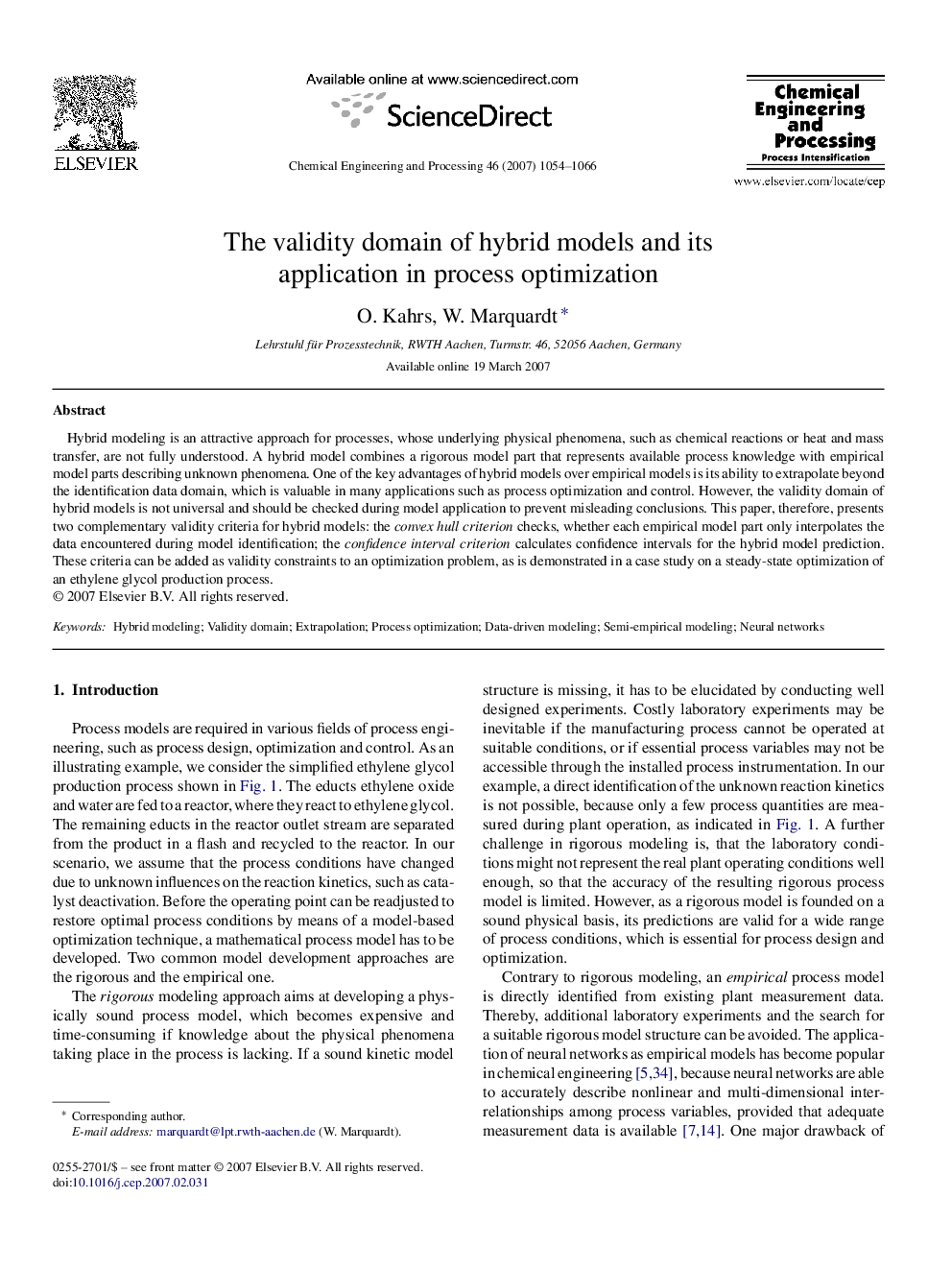| Article ID | Journal | Published Year | Pages | File Type |
|---|---|---|---|---|
| 688282 | Chemical Engineering and Processing: Process Intensification | 2007 | 13 Pages |
Hybrid modeling is an attractive approach for processes, whose underlying physical phenomena, such as chemical reactions or heat and mass transfer, are not fully understood. A hybrid model combines a rigorous model part that represents available process knowledge with empirical model parts describing unknown phenomena. One of the key advantages of hybrid models over empirical models is its ability to extrapolate beyond the identification data domain, which is valuable in many applications such as process optimization and control. However, the validity domain of hybrid models is not universal and should be checked during model application to prevent misleading conclusions. This paper, therefore, presents two complementary validity criteria for hybrid models: the convex hull criterion checks, whether each empirical model part only interpolates the data encountered during model identification; the confidence interval criterion calculates confidence intervals for the hybrid model prediction. These criteria can be added as validity constraints to an optimization problem, as is demonstrated in a case study on a steady-state optimization of an ethylene glycol production process.
